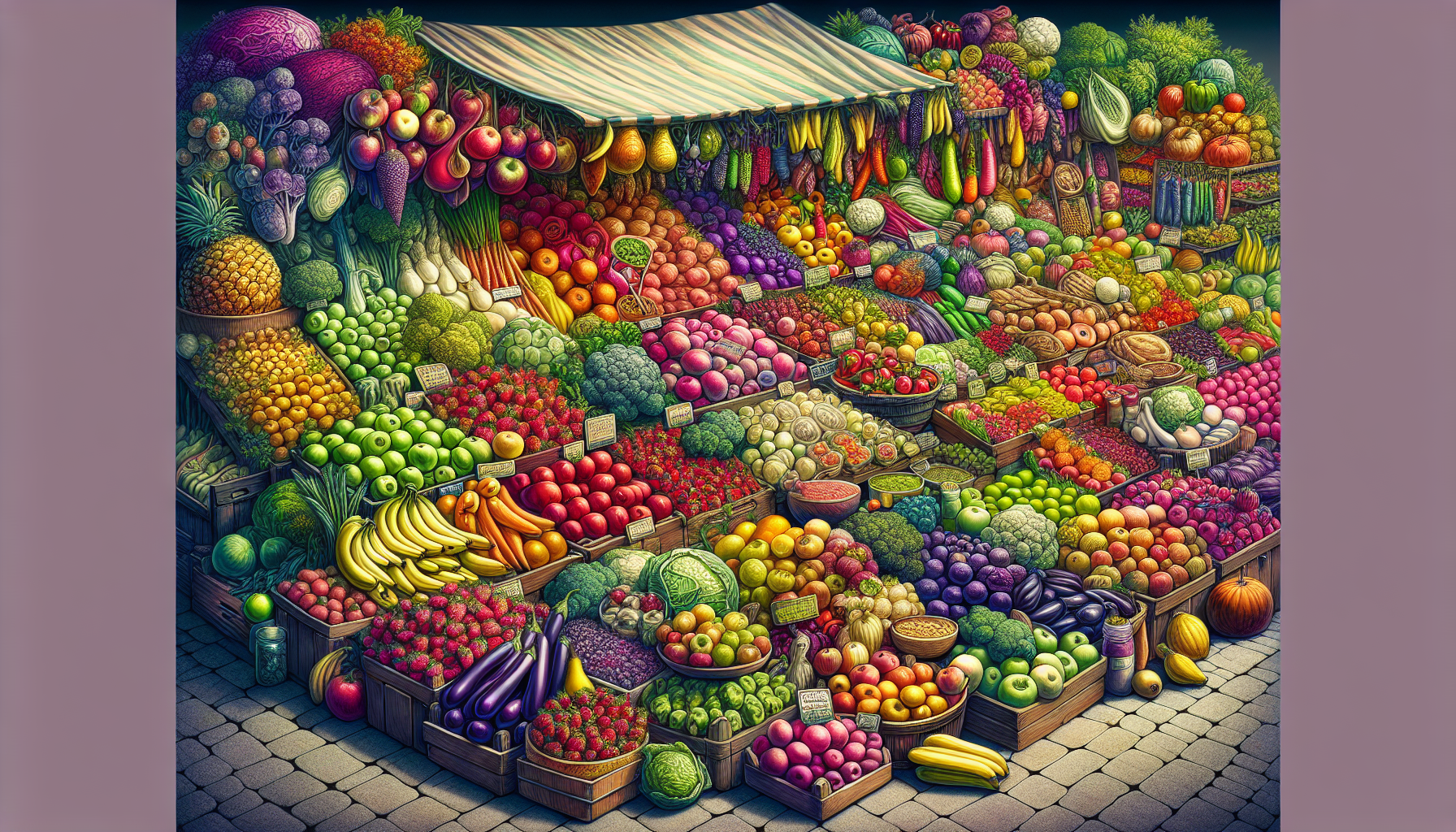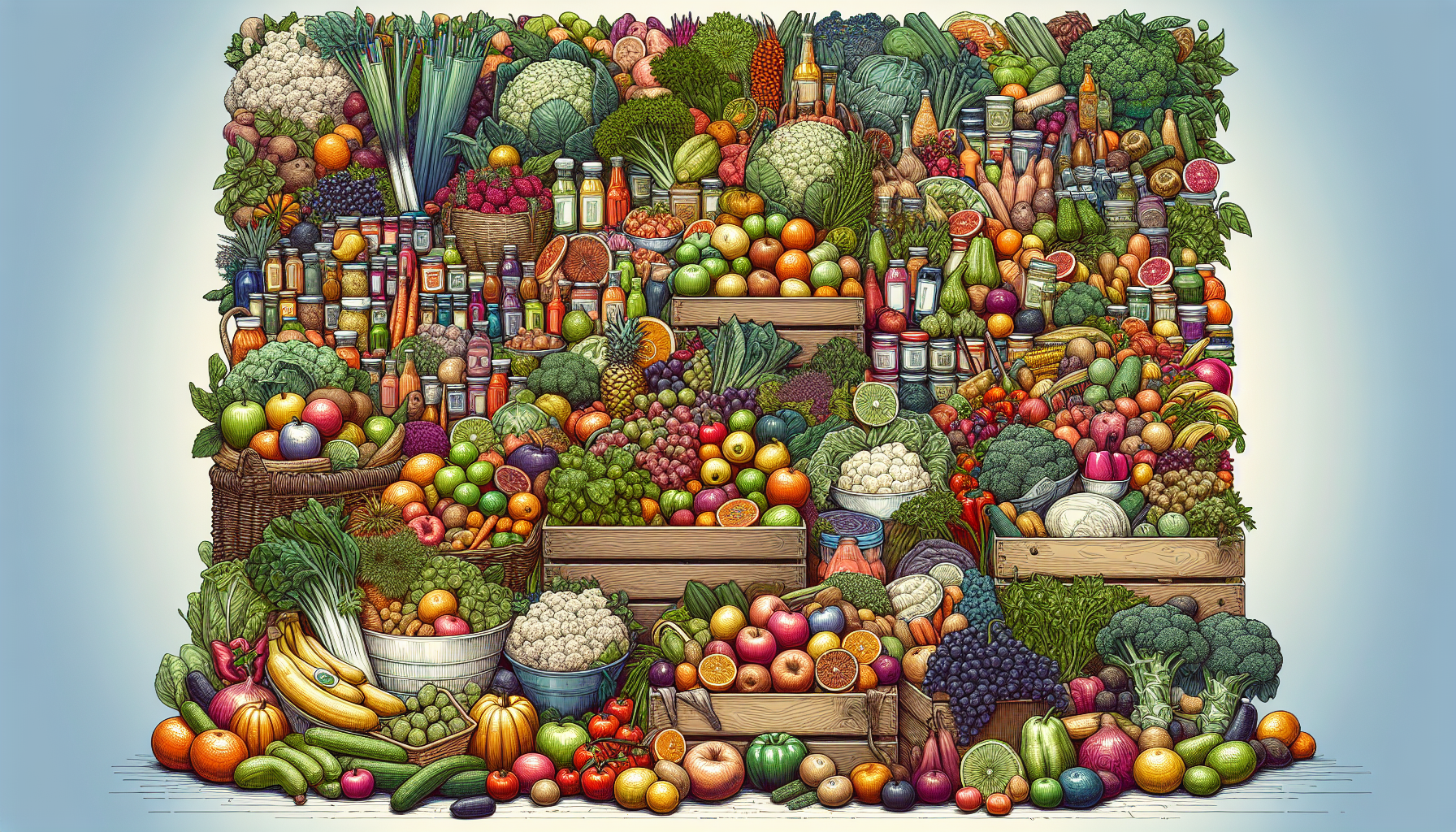Embarking on the journey of transitioning to a vegan lifestyle can bring about significant changes in your overall health and well-being. By making the conscious choice to eliminate animal products from your diet and embracing a plant-based approach, you are not only benefiting yourself but also contributing positively to the environment. This article aims to provide you with valuable insights, practical tips, and delectable recipes that will support and guide you in successfully transitioning to a vegan lifestyle.
Table of Contents
Understanding Veganism
What is veganism?
Veganism is a lifestyle choice that involves abstaining from the use of animal products, both in the diet and in everyday life. It goes beyond just following a plant-based diet, as it also encompasses the avoidance of animal-derived materials such as leather, fur, and wool. The primary goal of veganism is to minimize harm to animals and the environment by choosing cruelty-free alternatives.
Benefits of Adopting a Vegan Lifestyle
Adopting a vegan lifestyle can have numerous benefits for both individuals and the planet. From a health perspective, a well-planned vegan diet can provide all the necessary nutrients while reducing the risk of chronic diseases. It has been linked to lower rates of heart disease, diabetes, and certain types of cancer. Additionally, a vegan diet tends to be lower in saturated fat and cholesterol, which can help maintain healthy blood pressure and cholesterol levels.
From an environmental standpoint, choosing a vegan lifestyle can greatly reduce your carbon footprint. Animal agriculture is a significant contributor to greenhouse gas emissions, deforestation, and water pollution. By eliminating animal products from your diet, you are making a positive impact on climate change and promoting a more sustainable future.
Educating Yourself and Setting Goals
Researching Veganism
Before embarking on your vegan journey, it’s essential to educate yourself about the principles and practices of veganism. Understand the reasons behind choosing a vegan lifestyle, such as animal welfare, environmental sustainability, or personal health. Familiarize yourself with the potential challenges and benefits associated with this path.
Identifying Personal Motivations
Everyone has their own unique motivations for adopting a vegan lifestyle. Reflect on your values and priorities to understand why you want to make this change. Whether it’s for ethical reasons, improving your health, or reducing your environmental impact, identifying your personal motivations will help you stay committed and focused throughout your journey.
Setting Realistic Goals
Transitioning to a vegan lifestyle can be a gradual process, and it’s important to set realistic goals for yourself. Start by making small changes, such as replacing one meal a day with a plant-based option or gradually eliminating certain animal products from your diet. Celebrate your accomplishments along the way and remember that progress, no matter how small, is significant.

Gradual Transition or Cold Turkey?
Gradual Transition Approach
For many individuals, a gradual transition to veganism can be more sustainable and manageable. This approach involves gradually phasing out animal products from your diet and lifestyle. Start by eliminating one animal product at a time and replacing it with plant-based alternatives. As you become more comfortable and familiar with vegan options, you can continue to make further changes until you have fully transitioned.
Cold Turkey Approach
On the other hand, some individuals may find it easier to go “cold turkey” and make an immediate switch to a vegan lifestyle. This approach requires a strong commitment and determination to eliminate all animal products from your diet and everyday life in one fell swoop. While it can be challenging initially, the cold turkey approach can provide a sense of immediate change and create a clean break from previous dietary habits.
Finding the Right Approach for You
There is no one-size-fits-all approach to transitioning to a vegan lifestyle. Each person is unique, and it’s essential to find the approach that best suits your personality, preferences, and circumstances. Whether you choose a gradual transition or a cold turkey approach, the most important thing is to find a method that feels sustainable and maintainable for the long term.
Building a Solid Foundation
Stocking Your Pantry
As you begin your vegan journey, it’s important to stock your pantry with vegan-friendly staples. This includes items such as grains, legumes, nuts, seeds, fruits, vegetables, and plant-based milk alternatives. By having these essentials on hand, you’ll always have the foundation for creating delicious and nutritious plant-based meals.
Exploring Plant-Based Alternatives
One of the key elements of transitioning to a vegan lifestyle is exploring the wide variety of plant-based alternatives available. Replace animal products such as meat, eggs, and dairy with plant-based alternatives like tofu, tempeh, seitan, lentils, chickpeas, almond milk, and coconut yogurt. Experiment with different options to find the ones you enjoy the most.
Learning to Read Labels
Reading labels becomes essential when transitioning to a vegan lifestyle. Animal-derived ingredients can often hide in unexpected places, such as processed foods, sauces, and condiments. Familiarize yourself with common ingredients to avoid, such as eggs, milk, honey, gelatin, and fish sauce. Look for vegan certifications or labels to ensure that the products you purchase align with your values.
Meal Planning and Prepping
Meal planning and prepping can greatly simplify the process of transitioning to a vegan lifestyle. Spend some time each week planning your meals, creating a shopping list, and prepping ingredients in advance. This will help you stay organized, save time, and ensure that you always have nutritious and delicious meals readily available.

Navigating Social Situations
Communicating Your Choices to Others
When adopting a vegan lifestyle, it’s important to communicate your choices to friends, family, and colleagues. Explain your reasons for becoming vegan and express your intentions respectfully. Share why veganism is important to you and how it aligns with your values. By communicating effectively, you can foster understanding and encourage support from those around you.
Dealing with Criticism or Resistance
It’s not uncommon to encounter criticism or resistance when transitioning to a vegan lifestyle. Some people may have misconceptions about veganism or feel threatened by your choices. Stay patient, respectful, and open to listening to others’ perspectives. Share information, resources, and personal experiences to help debunk myths and address concerns.
Finding Vegan-Friendly Restaurants
Eating out can be a challenge when following a vegan lifestyle, but with a little research, you can find vegan-friendly restaurants in your area. Many restaurants now offer vegan options or can accommodate specific dietary requests. Make use of online platforms and apps that provide reviews and recommendations for vegan-friendly eateries. You can also call ahead to inquire about menu options before choosing a restaurant.
Attending Social Events
Social events can sometimes be tricky to navigate when you’re the only vegan in the room. If possible, offer to bring a vegan dish to share with others, ensuring that there’s something for you to enjoy. Alternatively, communicate your dietary needs to the event organizer in advance, so they can make appropriate accommodations. Remember to focus on the social aspect of the event rather than solely on the food, and use it as an opportunity to introduce others to delicious vegan options.
Maintaining Balanced Nutrition
Understanding Essential Nutrients
When following a vegan lifestyle, it’s important to ensure you’re getting all the essential nutrients your body needs. These include protein, iron, calcium, vitamin B12, omega-3 fatty acids, and zinc. Familiarize yourself with plant-based sources of these nutrients and consider consulting with a registered dietitian or nutritionist to ensure you’re meeting your specific needs.
Protein Sources in a Vegan Diet
Contrary to popular belief, protein can be obtained from a variety of plant-based sources. Incorporate foods such as legumes, tofu, tempeh, seitan, quinoa, nuts, and seeds into your meals to meet your protein requirements. Combining different plant-based protein sources throughout the day can help ensure you’re getting all the essential amino acids.
Getting Enough Iron, Calcium, and B12
Iron, calcium, and vitamin B12 are nutrients of particular concern for vegans. To increase your iron intake, include foods like leafy greens, beans, lentils, fortified cereals, and dried fruits in your diet. For calcium, focus on consuming calcium-fortified plant-based milk alternatives, tofu, leafy greens, and almonds. Lastly, ensure you’re meeting your vitamin B12 requirements by either consuming fortified foods or taking a B12 supplement.
Supplementation and Fortified Foods
In some cases, supplementation may be necessary to maintain optimal nutrient levels. Consult with a healthcare professional to determine if supplementation is right for you. Additionally, seek out fortified foods that are enriched with essential nutrients, such as plant-based milk alternatives, breakfast cereals, and nutritional yeasts.
Exploring New Foods and Recipes
Trying New Fruits and Vegetables
Transitioning to a vegan lifestyle opens up a world of exciting fruits and vegetables that you may not have explored before. Experiment with different varieties, colors, and textures to add variety and nutrition to your meals. Incorporate a rainbow of produce into your diet, including berries, leafy greens, cruciferous vegetables, root vegetables, and exotic fruits.
Experimenting with Plant-Based Proteins
plant-based proteins offer a diverse range of flavors and textures. Explore different options such as tempeh, tofu, seitan, chickpeas, lentils, and quinoa. These versatile ingredients can be transformed into delicious dishes like stir-fries, curries, burgers, and more.
Simple and Delicious Vegan Recipes
There are countless simple and delicious vegan recipes available that cater to all tastes and preferences. From hearty stews and comforting pastas to refreshing salads and indulgent desserts, vegan cuisine offers endless possibilities. Experiment with recipes from cookbooks, websites, or even create your own unique culinary masterpieces. Don’t be afraid to get creative in the kitchen!
Finding Support and Community
Joining Vegan Groups or Organizations
Joining local vegan groups or organizations can provide a sense of community and support. Attend meetings, events, and workshops to connect with like-minded individuals who share your values and are on a similar journey. These groups often offer resources, educational materials, and opportunities for advocacy and activism.
Online Vegan Communities
In addition to local groups, there are numerous online vegan communities and forums where you can connect with fellow vegans from around the world. These communities often provide support, advice, recipe ideas, and a platform for sharing experiences. Engaging in these online spaces can help you feel connected and supported even when physically surrounded by non-vegans.
Participating in Vegan Events or Meetups
Attend vegan events and meetups to immerse yourself in a positive and supportive environment. These gatherings often feature vegan food tastings, cooking demonstrations, educational talks, and opportunities to connect with local businesses and organizations that align with your values. Surrounding yourself with like-minded individuals can provide encouragement and inspiration throughout your vegan journey.
Overcoming Challenges
Dealing with Cravings
Cravings for familiar foods can be a common challenge when transitioning to a vegan lifestyle. Remind yourself of the reasons why you chose to adopt this lifestyle and the benefits it provides. Explore vegan alternatives and find substitutes that satisfy your cravings. With time, your taste buds will adapt, and you may find that you no longer crave the foods you once did.
Handling Setbacks
Setbacks are a natural part of any lifestyle change. If you find yourself straying from your vegan path, practice self-compassion and remember that progress is more important than perfection. Reflect on what may have led to the setback and use it as an opportunity for growth and learning. Get back on track and continue moving forward with your vegan journey.
Staying Motivated
Staying motivated throughout your vegan journey is crucial for long-term success. Remind yourself of your personal motivations and the positive impact your choices have on animals, the environment, and your own health. Surround yourself with supportive individuals, engage in activities that inspire you, and explore new vegan recipes or restaurants to keep things exciting. Celebrate your achievements and milestones along the way, no matter how small they may seem.
Long-term Sustainability
Creating a Long-term Plan
To ensure the long-term sustainability of your vegan lifestyle, it’s important to create a plan that works for you. Set realistic and achievable goals, both short-term and long-term. Continuously assess and reassess your motivations, desires, and progress to stay aligned with your values. Remember that making a lasting impact takes time, patience, and perseverance.
Expanding Your Knowledge and Skills
As you continue on your vegan journey, invest time in expanding your knowledge and skills. Read books, articles, and scientific studies about veganism, nutrition, and ethics. Enroll in cooking classes or watch tutorials to enhance your culinary skills. By continuously learning and growing, you become better equipped to navigate challenges and advocate for veganism.
Advocating for Veganism
Once you’ve established a strong foundation and feel confident in your vegan lifestyle, consider advocating for veganism and the values it represents. Share your experiences, knowledge, and resources with others in a positive and compassionate manner. By being an advocate, you can inspire and empower those around you to make more conscious and compassionate choices.
Transitioning to a vegan lifestyle is a personal journey that involves education, dedication, and embracing new experiences. By understanding the principles of veganism, setting realistic goals, building a solid foundation, navigating social situations, maintaining balanced nutrition, exploring new foods and recipes, finding support and community, overcoming challenges, and ensuring long-term sustainability, you can successfully transition to and thrive in a vegan lifestyle. Remember that every step you take towards a cruelty-free and sustainable life makes a difference, and you have the power to create positive change.






